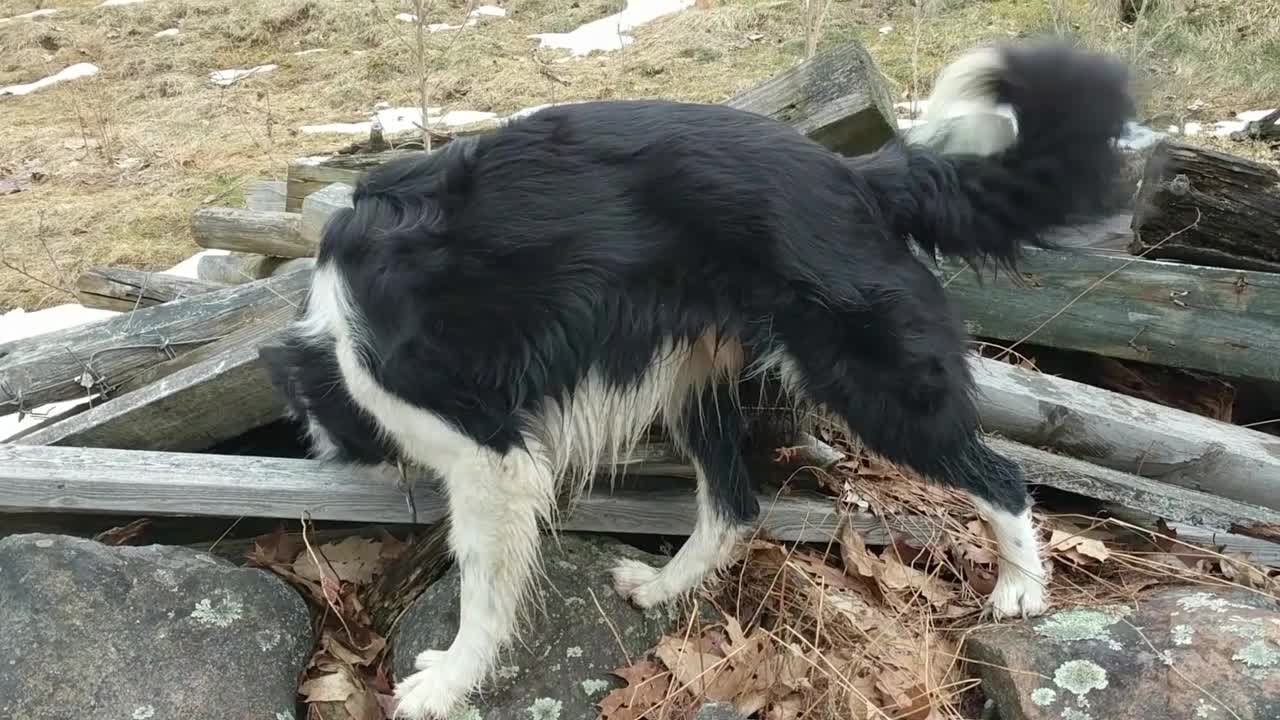Perhaps spring is coming — Cass and Luc had their first chipmunk hunt this evening. Chloe is still figuring out how she fits into the household; she desperately wants to join in the game, but she’s rarely clear what game Luc and Cass are playing.
It’s worth watching with the volume up, as the chipmunk announces itself, and then makes a brief appearance. I’ve spent years wondering what the evolutionary benefit of the chipmunk’s chip could be… It seems that my dogs rarely realize that a chipmunk is present until they hear the vocalization (though in this case, Luc found it by scent, and Cass joined in), and then they start chasing, so you’d think the better strategy would be to shut the fuck up. I’ve come up with many hypotheses to explain this, none of which seems entirely plausible, but the two top finishers are:
- An altruistic motivation, whereby the first chipmunk to notice a predator warns others in the area, possibly giving himself up for the good of the rest. I don’t want to be unduly harsh toward chipmunks, but prairie dogs they ain’t; they don’t strike me as having anything like the sort of complex social organization that would select for self-sacrificing behavior.
- Some kind of weird acoustic phenomenon whereby the predator perceives the chip as coming from somewhere other than the chipmunk source. During long, mind-wandering trail runs, I fantasize about researching this and eventually publishing a scientific paper entitled “Ventriloquism in Rodentia: The Curious Case of the Chipmunk.” This, too, seems like a stretch, but it would be lovely to get funding to study it, if only to hear a red-faced conservative Senator decry it on the Senate floor as an example of liberal science gone wildly wrong.
If anyone has a better idea — or actual information — I’d love to hear it.
Tagged: Cass, chipmunk, Chloe, fitting in, Hollow Oak Farm, hunting, Luc, spring, Tamias striatus, unclear on the concept
